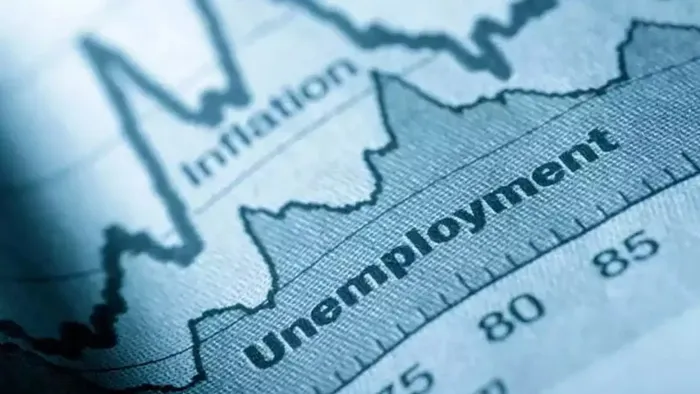
Many South Africans are in for a bleak 2025 festive season at the back of retrenchments, inflation and stagnant salaries.
Image: File
As the festive season approaches, South Africa's economic struggle including an alarmingly high unemployment rate and the escalating cost of living are poised to deepen the crisis facing many working-class citizens and the country's poorest communities.
Economists and activists are sounding the alarm that this year's season of cheer may deliver little more than hardship and disillusionment.
Mametlwe Sebei, president of the General Industries Workers Union of SA (Giwusa), articulated the concerns surrounding the upcoming festive period, suggesting that it could be "worse than a black Christmas," a term traditionally associated with economic despair.
"The festive season is coming against the background of economic catastrophes that have befallen the working class one after the other, with waves of retrenchments, waves of factory closures, waves of mine closures, and a crisis that cuts across almost every industry."
Sebei said that people should not misunderstand what it means when reports show little increases in the cost of living over the past few months.
"The high cost of living is very much with us; it might have eased in the past two, three months, but let's understand what that means. The prices of food have not fallen; it just means they are now increasing at a much slower pace compared to the increases before," he said.
"This is the slowing down of price increases on top of astronomical and staggering prices that have had devastating impacts over the years as prices were increasing more than salaries."
The union recently held marches against hunger to highlight the food insecurity and what it means for working-class South Africans, he said.
Sebei said that the working class was being "hammered" from every corner.
"The crisis of food insecurity and what it means in the context of the working-class, where it has reached catastrophic levels of hunger and starvation at the same time where the retail monopolies are sitting on a mountain of cash in profits extracted ruthlessly from the labour of their workers that they underpay, but also through inflated food prices."
He said that the festive season should be about spending and enjoying time with loved ones, enjoying food and drinks together.
South Africa has an unemployment rate of 33.20% according to Statistics SA.
According to information from the Department of Employment and Labour, the average general worker in South Africa earns between R4,990 and R5,620 per month which exacerbates the levels of poverty, due to prices of food and other items increasing while salaries remain stagnant.
According to the Pietermaritzburg Economic Justice and Dignity group, this remuneration is not in line with the cost of living as an average food basket for a family of four costs upward of R3,800 per month.
Nomvelo Moima, Junior Economist at the Bureau of Economic Research at Stellenbosch University, said the 2025 festive season was not going to be as lively as 2024; however, it would be better compared to 2020 to 2023.
"Lower consumer inflation and transport costs being in a better place compared to the last five years, should provide some relief to middle to low-income consumers. However, weak growth ultimately limits the extent to which this can support disposable incomes," Moima said.
"It's unlikely that this coming festive season will be better than last year's, given the boost from the two-pot retirement reform from middle-income households, but it certainly should be one of the better festive seasons consumers have had since 2020."
Economist, Dawie Roodt, expressed concern over the issue of unemployment, citing that it was a huge contributor to the issues society faces.
"On average, South Africans are getting poorer; we've been getting poorer for quite a long period of time," he said.
"We have as we know, record high levels of unemployment, and what I am particularly worried about is that we have high levels of not only poverty, but absolute poverty, and we even have cases where a couple of thousands of children dying of hunger in South Africa, so absolute poverty levels are going up as well and that has to do with the population that's growing faster than what the economy is expanding at."
Roodt said South Africans were swimming against the economic stream.
"I'm afraid on average, the average worker in South Africa is going to have a worse festive season than before, it doesn't mean everybody, of course," Roodt said.
"I'm talking about averages and averages can be an incorrect way of looking at what is happening in our economy, but the reality is on average, things are really not looking that good for South Africans, so I'm afraid the festive season for many people is probably not going to be such a festive season."
Waldo Krugell, Professor of Economics at the North West University, said: "I think the festive season may not be as good as last year. In 2024, low inflation, interest rate cuts and two-pot savings made for a good season.
"This year conditions are a bit tighter. In households that experienced a job loss this year, things will be tough."
Johannesburg resident Ayanda Malimbi said preparation has been key.
"Some of us are unemployed mothers, and we have already started buying our children clothes on lay-by. We do it so we can deal with the prices, because it is not easy for all of us to just walk into a store and buy right there and then," she said.
Resident Ntokozo Malinga said shopping while shops had sales was another way to ensure savings.
"I have some money saved up, this is money I am only going to touch on black Friday and the next few days after that, because I know prices would be reduced around that time. In terms of the food, we won't all go extravagant, so I'm covered with that too."
The Star
Related Topics: